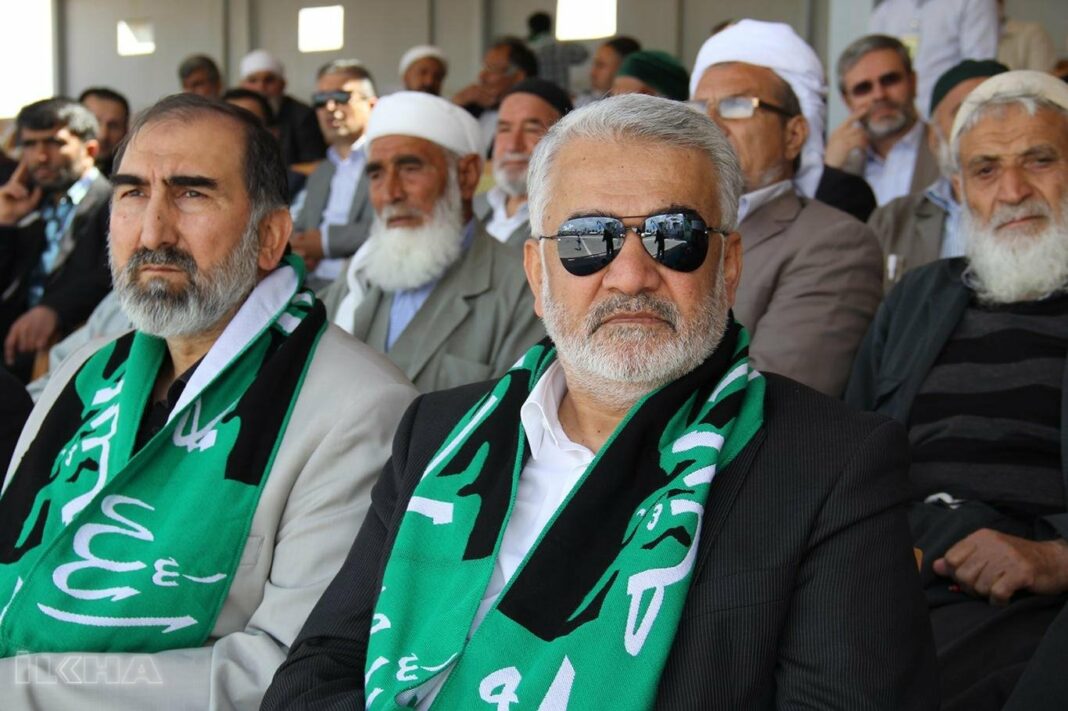Türkmen Terzi
Since taking office in 2003, Turkish President Recep Tayyip Erdoğan has publicly declared that he has “taken off the Milli Görüş [National Vision] shirt,” referring to the religious-political movement inspired by his long-time mentor, former prime minister Necmettin Erbakan. Erdoğan’s Justice and Development Party (AKP) achieved key democratic reforms through several European Union harmonization packages during the second half of the 2000s. During this period Erdoğan’s AKP received substantial support for its democratization efforts from European capitals, minorities in Turkey, liberals and the Gülen movement. However, since 2011, the AKP has retreated from democratization, filling key state institutions with the party’s core Islamist circle and allocating state resources to corrupt party members.
Erdoğan’s AKP formed the People’s Alliance with the Nationalist Movement Party (MHP) for the 2018 presidential and parliamentary elections, and he has been allowing Doğu Perinçek, the leader of Turkey’s ultranationalist Motherland Party who wields significant influence in the Defense Ministry, to have a say in the country’s governance as well, While Erdoğan’s political alliance with nationalist figures is understandable, given diminishing support from Kurds, his recent election alliance with the Free Cause Party (HÜDA-PAR), a radical Islamist party that some refer to as “Turkey’s ISIL [Islamic State in Iraq and the Levant],” signifies Erdoğan’s growing Islamic radicalism.
Former Peoples’ Democratic Party (HDP) co-chair Selahattin Demirtaş, imprisoned since November 2016, warned that Erdoğan and his alliances would manipulate the election results. “AKP + MHP + BBP + Vatan Partisi + HÜDA-PAR… What unites them? Serious criminal complicity or preparations for a new war? One thing is certain: It’s not love for country,” Demirtaş tweeted on Jan. 28. Main opposition Republican People’s Party (CHP) lawmaker Engin Altay also commented that Erdoğan’s outreach to Islamist parties “signals the resurgence of his true face and anti-republican sentiments.” Muharrem İnce, chairman of the Memleket (Homeland) Party and a presidential candidate, reacted to Erdoğan’s alliance with HÜDA-PAR by reminding that HÜDA-PAR is the political wing of Turkish Hizbullah, the armed group responsible for assassinating Diyarbakır’s police chief Gaffar Okkan in 2001. İnce asserted that his party would never allow the secular, democratic Turkish Republic’s indivisible integrity to be compromised by Erdoğan and his radical circle.
Interestingly, Necmettin Erbakan’s son, Fatih Erbakan, and his New Welfare Party, along with nationalist parties, joined Erdoğan’s People’s Alliance for Turkey’s upcoming elections scheduled for May 14. On the other hand, Erdoğan’s alliance with HÜDA-PAR has shocked many in the country. Erdoğan began his political career as the head of a local youth branch of Erbakan’s Islamist National Salvation Party (MSP) in 1976 and later served as İstanbul’s mayor under Erbakan’s Welfare Party (RP) between 1994 and1998. In 2001 Erdoğan, along with Abdullah Gül and Bülent Arınç, reformist figures from the Milli Görüş movement, formed the AKP. Both young Fatih Erbakan and Erdoğan share a mindset rooted in Milli Görüş, which itself has connections to the Muslim Brotherhood, the transnational Sunni Islamist organization founded in Egypt by Islamic scholar Hassan al-Banna in 1928. Since Erdoğan called off a peace process with the Kurds in July 2015, he has targeted nationalist votes. Erdoğan’s electoral alliance partners, the MHP and the far-right Grand Unity Party (BBP), view Kurdish political parties as a political front for the outlawed Kurdistan Workers’ Party (PKK), the militant group that has been fighting the Turkish state for the past four decades.
Erdoğan’s election alliance with HÜDA-PAR suggests that the Turkish president aims to punish Kurdish voters who no longer support him. HÜDA-PAR can be seen as the political wing of the Islamic fundamentalist militant group Hizbullah, which has no connection to the Lebanese Hezbollah group. This organization killed hundreds of Kurds during the 1990s. Numerous reports indicate that the Turkish state used Hizbullah against the PKK and Kurdish political parties. Both HÜDA-PAR and the PKK desire greater Kurdish independence in Turkey’s Kurdish-majority southeastern region, either through a federalist or a separatist approach. However, despite having similar goals, they remain in conflict with each other, as the PKK is a Marxist-Leninist movement, while HÜDA-PAR envisions Sharia law in Kurdish areas.
The conflict between Hizbullah and the PKK reignited in October 2014 when Kurds protested ISIL’s offensive in Kobani. Following the deadly clash between Kurdish groups, then-deputy prime minister Arınç visited HÜDA-PAR and shared his view that “the HDP is not the only representative of the Kurds. HÜDA-PAR has a vision for a new civilization centered on humanity.” Erdoğan repeatedly blamed HDP members for the killing of Yasin Börü, a 16-year-old boy and reportedly a HÜDA-PAR sympathizer, during the Kobani protests in October 2014. Erdoğan’s concern for a 16-year-old Kurdish youth is hardly genuine as he has never expressed sympathy for the many Kurds who lost their lives during the clashes between the PKK and Turkish forces, and he ordered the destruction of Kurdish cities in 2015 after ending the Kurdish peace process.
Erdoğan has abandoned democratic ways, and Turkey no longer serves as a role model for Islamic countries as it supports radical groups in Syria and other parts of the world. In the June 2015 election Erdoğan lost his parliamentary majority, with the HDP receiving nearly 13 percent of the vote. Additionally Erdoğan lost the İstanbul Municipality in June 2019, when approximately 2 million Kurds in İstanbul voted for CHP candidate Ekrem İmamoğlu.
Erdoğan’s alliance with HÜDA-PAR poses a serious threat to Kurdish voters who do not support the ruling AKP. Not only has Erdoğan donned the Milli Görüş shirt again, but he is also allied with HÜDA-PAR. The Turkish president has revealed his true colors, having been a democrat for only a brief period during his 20-year rule.
